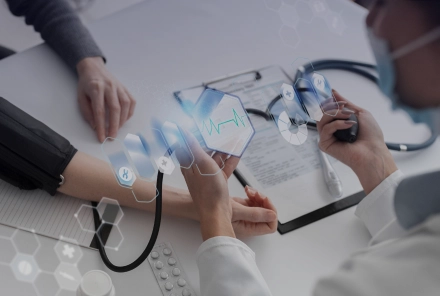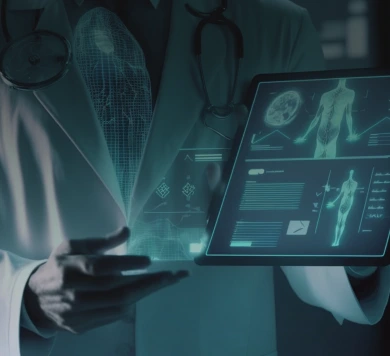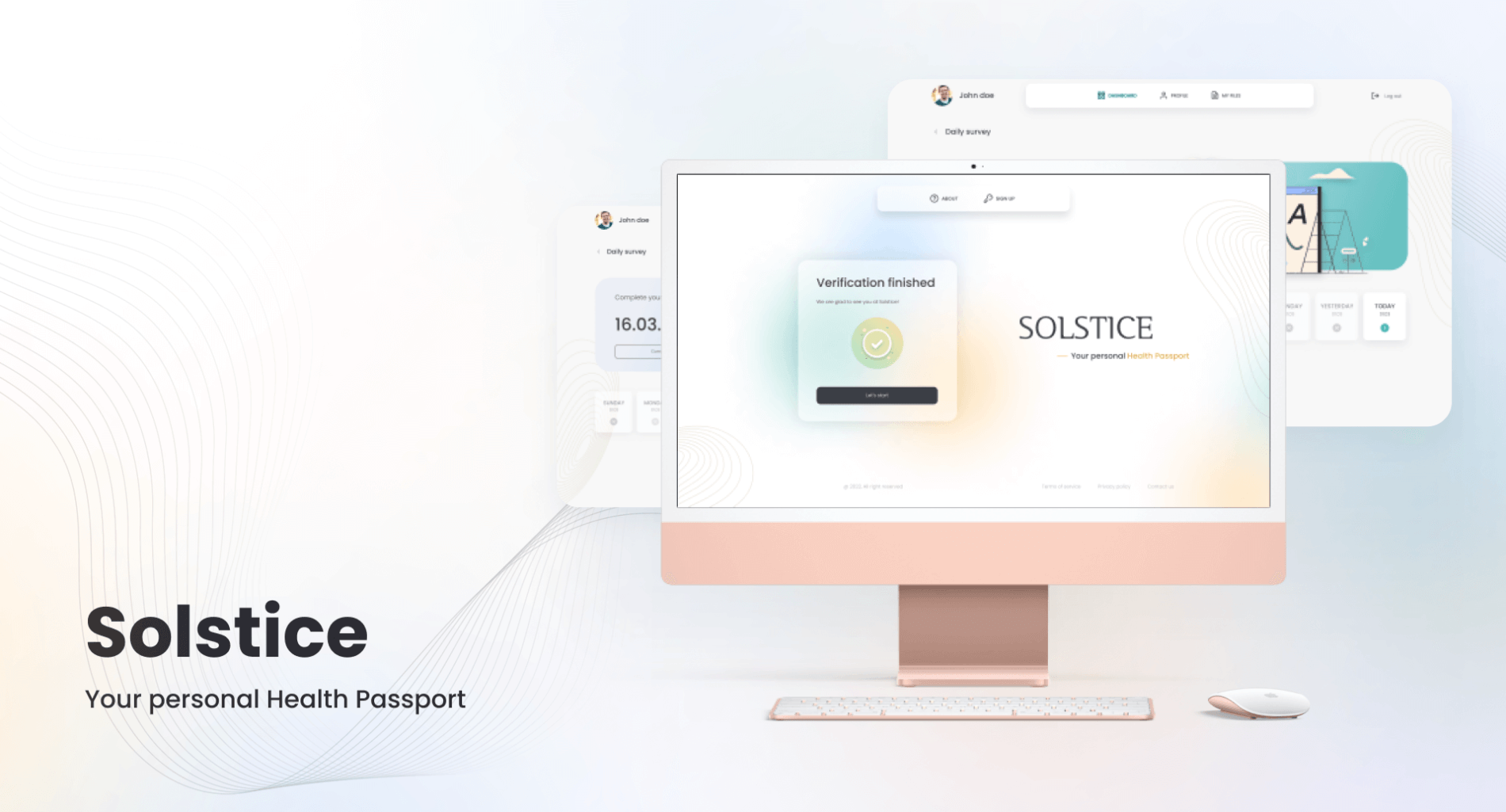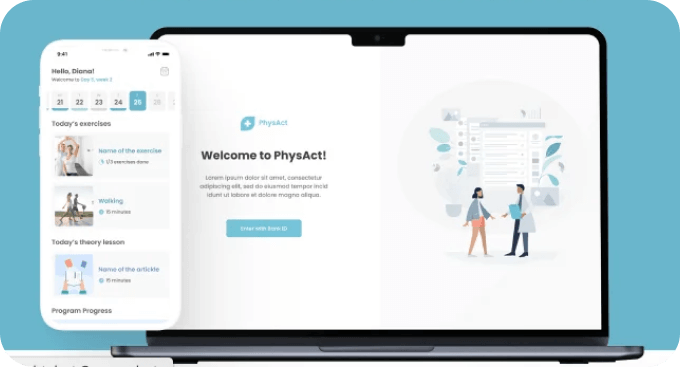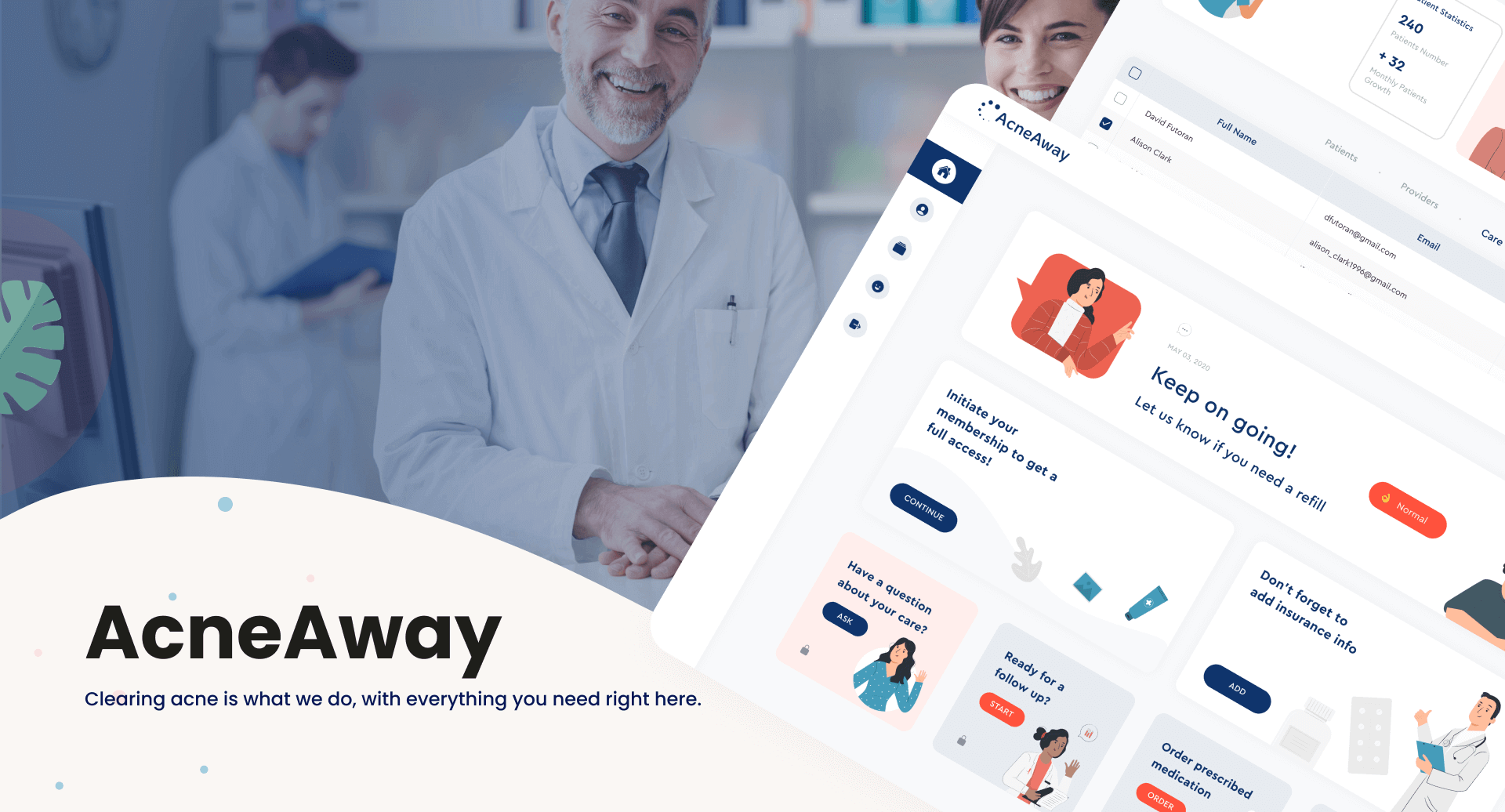Healthcare systems worldwide are under constant pressure to enhance patient data security and improve data accessibility. Traditional data management methods have proven vulnerable to breaches and inefficiencies, calling for innovative solutions. Blockchain technology, with its decentralized and secure framework, coupled with tokenization, presents a promising way to address these challenges. This article delves into how blockchain development and tokenization can transform healthcare, ensuring safer and more accessible patient data.
 $7.04 billion
$7.04 billion
The global blockchain in healthcare market size was valued at $7.04 billion in 2023.
 $3.5 billion
$3.5 billion
The global tokenization market size was valued at $3.5 billion in 2023.
 $1.6 billion
$1.6 billion
The global healthcare smart contracts market size was valued at $1.6 billion in 2021.
Understanding Blockchain and Tokenization in Healthcare
Blockchain is a decentralized digital ledger technology in which transactions are recorded across multiple computers to ensure data integrity and transparency. This structure prevents any single point of failure and makes it nearly impossible to modify data once it is recorded, offering unprecedented security and trust.
In healthcare app development, blockchain technology ensures that patient records are immutable and transparent. This decentralized framework allows for secure and efficient data sharing among healthcare providers. Blockchain’s transparency and security features are essential for maintaining the integrity of medical records, reducing fraud, and improving patient outcomes.

Tokenization is a process that converts sensitive data into tokens, which are random strings of characters. These tokens can be used to represent the original data securely, ensuring that sensitive information, such as patient records, remains protected even if intercepted. Tokenization enhances security by ensuring that only those with the correct decryption keys can access the original data. The technology is widely used across industries, including real estate tokenization.
In healthcare, tokenization protects patient data by converting it into tokens that are meaningless without the proper decryption. This method enhances patient privacy and security, as the actual data is never exposed. Tokenization also facilitates secure data sharing and interoperability among healthcare providers, protecting sensitive information during transactions.
7 Use Cases of Tokenization in Healthcare
-
1 Patient Data Security
Tokenization protects sensitive patient information by converting it into tokens that can’t be exploited. This method ensures that health records remain secure from unauthorized access and breaches. For instance, in clinical trials, tokenization can anonymize patient data, maintaining privacy while allowing researchers to access necessary information.
-
2 Patient Identity Management
Tokenization can be used to create secure and verifiable patient identities. This minimizes the risk of identity theft and ensures that patients can be accurately identified across different medical care providers, improving the continuity of care.
-
3 Data Accessibility
Blockchain’s decentralized nature enables seamless data sharing across different healthcare providers. Tokenization ensures that data shared is secure and accessible only to authorized individuals. This interoperability can improve patient outcomes by providing comprehensive health records to any authorized healthcare provider, facilitating informed and timely medical decisions.
-
4 Supply Chain Management
Blockchain and tokenization can track the entire lifecycle of pharmaceuticals, ensuring authenticity and preventing counterfeit drugs. All transactions in the supply chain are recorded on the blockchain, providing a transparent and traceable path from manufacturer to patient.
-
5 Insurance Claims Processing
Blockchain in health insurance can streamline insurance claims through tokenization and automated verification and approval processes. Smart contracts on the blockchain can trigger payments once conditions are met, reducing administrative overhead and minimizing fraud.
-
6 Telemedicine and Remote Patient Monitoring
Blockchain can securely handle the data from remote monitoring devices, ensuring that sensitive patient information remains confidential while being accessible to authorized healthcare providers. This enhances the quality of remote care and patient monitoring.
-
7 Clinical Trials and Research
Tokenization ensures the integrity of clinical trial data by maintaining a secure and immutable record of all trial activities. It can also streamline participant recruitment and consent processes, ensuring transparency and compliance with regulatory requirements.
Curious about how blockchain and tokenization can benefit your healthcare operations?
Let’s discussAddressing 4 Healthcare Challenges with Blockchain Solutions
Data Breaches and Security
With healthcare data a prime target for cyberattacks, blockchain’s secure framework reduces the risk of breaches. The decentralized ledger ensures that data cannot be altered once it is recorded, providing high data integrity.
Interoperability Issues
Healthcare systems often struggle with incompatible data formats and systems. Blockchain standardizes data formats, ensuring seamless data exchange and interoperability between healthcare providers.
Inefficiencies in Data Management
Traditional healthcare data management systems are prone to errors and inefficiencies. Blockchain streamlines these processes, reducing administrative burdens and enhancing the accuracy of health records.
Patient Data Control
Patients often have limited control over their medical records. Blockchain empowers patients by giving them ownership of their data, allowing them to manage access and ensure their privacy.

Discover how blockchain and tokenization can enhance security and accessibility in your healthcare system.
Get in touchThe Future of Blockchain and Tokenization in Healthcare
-
Integration with AI
Combining blockchain with Artificial Intelligence development can revolutionize healthcare analytics. AI can analyze large volumes of tokenized health data, providing insights for personalized medicine and predictive diagnostics without compromising data privacy.
-
Global Health Data Standards
As blockchain adoption increases, there is potential for developing global health data standards. This would ensure that health records are universally accessible and interoperable, facilitating seamless care across borders.
-
Smart Contracts for Enhanced Efficiency
Smart contracts development can automate numerous healthcare processes, from clinical trials to insurance claims. This automation can reduce costs, improve efficiency, and minimize human error.
-
Expansion of Telemedicine Services
Blockchain can further enhance telemedicine by providing secure, immutable records of patient interactions and ensuring that remote monitoring data is accurately and securely recorded.
-
Patient-Centric Care Models
The empowerment of patients through blockchain and tokenization can lead to more patient-centric care models. Patients will have greater control over their health data, leading to better engagement and improved health outcomes.
Real-Life Examples of Blockchain and Tokenization in Healthcare
Solstice
Solstice, a healthcare application developed by Interexy, leverages blockchain to improve patient data management and security. By utilizing blockchain’s decentralized ledger, Solstice ensures that patient records are immutable and accessible only to authorized personnel. This enhances data security, reduces the risk of breaches, and improves overall patient care by providing accurate and up-to-date medical information.

Medicalchain
Medicalchain uses blockchain to build a secure and transparent platform for storing and sharing electronic health records (EHRs). Medicalchain’s platform tokenizes patient data, allowing patients to control who can access their records and ensuring that all interactions are securely logged on the blockchain. This not only improves data security but also enhances patient empowerment and data accessibility.
Tokenization Services by Interexy
Final Thoughts
Blockchain and tokenization are set to revolutionize the healthcare domain by addressing critical challenges related to data security, accessibility, and interoperability. By leveraging these technologies, healthcare providers can ensure secure, efficient, and patient-centric data management systems.
As the technology evolves, its adoption will likely lead to a more robust and innovative healthcare landscape, ultimately enhancing patient care and outcomes. Embracing these advancements today sets the foundation for tomorrow’s safer, more efficient healthcare system.

FAQs
-
What are some notable use cases of blockchain technology in healthcare?
Blockchain in healthcare enhances medical records management by securely exchanging patient data, improves drug supply chain transparency to prevent counterfeit medications, and ensures data integrity in clinical trials. It streamlines insurance claims processing, reducing costs and fraud, and secures data sharing in telemedicine and remote monitoring. These applications improve security, transparency, and efficiency, improving patient outcomes.
-
How does tokenization differ from traditional encryption methods in securing patient data?
Tokenization and traditional encryption aim to protect sensitive data, but they do so differently. Encryption transforms data into an encoded format that can only be decoded with the correct key. In contrast, tokenization replaces sensitive data with unique identification symbols or tokens with no exploitable value. In a blockchain context, tokenization provides an additional layer of security by ensuring that even if data is intercepted, it remains meaningless and unusable without the proper access rights and decryption methods.
-
What are the challenges of implementing blockchain in healthcare, and how can they be addressed?
Implementing blockchain in healthcare comes with several challenges, including scalability issues, high implementation costs, and the need for widespread adoption among healthcare providers. Additionally, integrating blockchain with existing healthcare IT systems can be complex. These challenges can be addressed through developing scalable blockchain solutions, investing in cost-effective technologies, and promoting industry-wide standards and regulations. Education and training for healthcare professionals on the benefits and use of blockchain can also facilitate smoother implementation.



